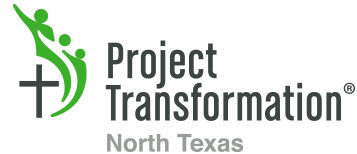
Pastor Edgar Bazan: Planting Seeds
We often say there are 3C’s of Project Transformation- children, college-age young adults, and churches. In this interview we’re focusing on the 3rd C of church, speaking with Edgar Bazan, the pastor of New World UMC in Garland, where they are hosting their first summer camp with Project Transformation North Texas.
When were you introduced to PT and with what churches have you been connected to PT?
I came to Casa Linda UMC in 2004 to serve as associate pastor, and by 2005 we started hosting Project Transformation at the church. Then in 2007, I was appointed to Oak Cliff UMC. At Oak Cliff, I became really involved with PT as a senior pastor of the church. As a host, I worked with the program coordinators- the interns (we called them interns at the time) and got involved in all the stuff that PT does. After Oak Cliff UMC, I moved to Tyler Street UMC, which was a different experience because they don’t host PT but house members at an apartment complex. Then, in 2019, I went back to Casa Linda UMC. Even when I was not at a church with PT, I was still involved at PT as a speaker for some events and serving as a board member of PT National.
How do you see PT being a part of your church’s outreach in this community?
From my experience, in the churches where we’ve had PT, PT does something quite effortlessly for the church, which is to have people come to the building and have the children there for summer camp or the after-school program. That is a huge gift because if people are coming to the church, it allows you to connect with them, get to know them, and for them to feel comfortable going into the building. I say this because I heard stories when someone would say, “oh, I thought that was a white church (meaning English speaking only).” Even when the church had a sign outside “Servicios en Español” they wouldn’t go to the church because of that assumption. But when you have PT at your church, it facilitates a process of breaking down those misconceptions or barriers. Whether it’s an eight-week summer camp or an after-school program, PT allows you to build relationships and open the church to new people. Of course, not everyone gets interested in joining the church, but at least there is a new perspective or understanding of what the church is because of PT. And you never know what those seeds are going to become in the future. You never know. Keep in mind that PT is still young, so you keep planting those seeds and the church may benefit from it in the future without even understanding how.
Has PT helped you in your ministry as a pastor?
It has given me a broader context to understand what’s happening in communities. This happens when you meet families from outside the church, not necessarily Christian or religious. Because of those encounters and interactions, you see a different world, meaning, dynamics, needs, and ways of thinking. PT gives you lenses to look at a community, not through the church filters, but just a raw view. I speak about the community now by what I know through the church and what I know because I connected with people through PT.
What do you feel like the church has to offer the community?
We have to be a herald of good news. To me, that means: “Your life matters,” “You have a purpose,” and “You are not an accident of galactic chance.” “You were created intentionally for love, and because of love, and out of love.” All that is part of the gospel of Jesus, and many people don’t know that. It shows up in self-esteem, self-worth, and a lot of issues that come from that. Not knowing who you are and that you are loved. The church needs to be clear about the good news that we offer in that God is good, God is kind, and God wants you to be happy. Truly I believe that. That doesn’t deny the suffering we all experience, but despite that, God did not create us for misery or death. I don’t always get to share “Bible stuff” with them, but if they’re open for me to do so I will share my faith journey with them. It always begins with encouragement. That things will be better. That’s what the good news is and what the church should do.





